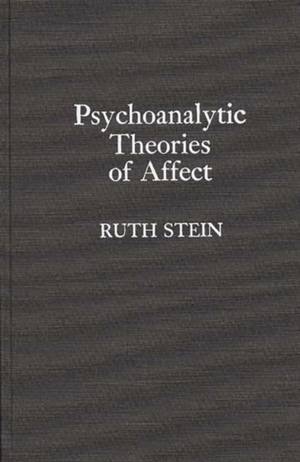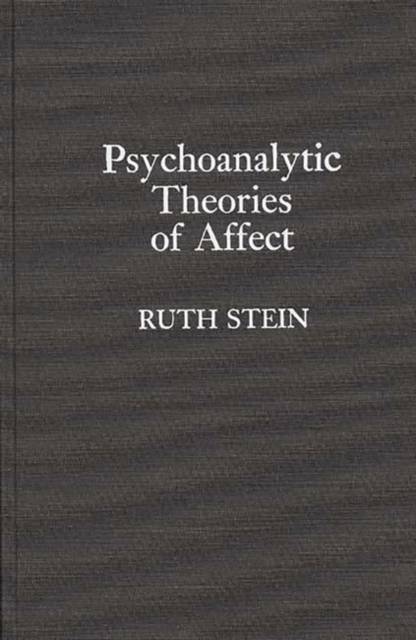
En raison d'une grêve chez bpost, votre commande pourrait être retardée. Vous avez besoin d’un livre rapidement ? Nos magasins vous accueillent à bras ouverts !
- Retrait gratuit dans votre magasin Club
- 7.000.000 titres dans notre catalogue
- Payer en toute sécurité
- Toujours un magasin près de chez vous
En raison de la grêve chez bpost, votre commande pourrait être retardée. Vous avez besoin d’un livre rapidement ? Nos magasins vous accueillent à bras ouverts !
- Retrait gratuit dans votre magasin Club
- 7.000.0000 titres dans notre catalogue
- Payer en toute sécurité
- Toujours un magasin près de chez vous
161,45 €
+ 322 points
Description
According to Ruth Stein, an updated and clinically-relevant affect theory is conspicuously absent in the field of psychoanalysis. This book represents the first attempt to collate and clarify theories on affect as they relate to the clinical process. Stein outlines and analyzes the most important affect theories and empirical work presented in the last one hundred years. She exposes the rigidity of some automatically held notions about affects and draws on the newer ideas in the field to paint a large-scale picture of contemporary thought on the subject.
Stein traces and discusses Freud's affect theories, and the insights to clinical practice offered by his immediate successors. She also discusses ego psychology, the implicit affect theories of Melanie Klein and Wilfred Bion, and the thought of three contemporary contributors: Joseph Sandler, Otto Kernberg, and Andre Green. She also examines recent theories of emotion in experimental psychology. Stein concludes that certain characteristics of affect necessitate a meta-clinical (meta-psychological) theory in psychoanalysis, in contrast to some opposing claims. Uncovering some prevalent misconceptions about affect, Stein points to future directions for making affect theory relevant to clinical knowledge and practice. This work is an important resource for researchers and practitioners in psychoanalysis, personality theory, emotions and motivation, and philosophy of psychology.Spécifications
Parties prenantes
- Auteur(s) :
- Editeur:
Contenu
- Nombre de pages :
- 240
- Langue:
- Anglais
Caractéristiques
- EAN:
- 9780275939847
- Date de parution :
- 21-11-91
- Format:
- Livre relié
- Format numérique:
- Genaaid
- Dimensions :
- 155 mm x 242 mm
- Poids :
- 544 g

Les avis
Nous publions uniquement les avis qui respectent les conditions requises. Consultez nos conditions pour les avis.






